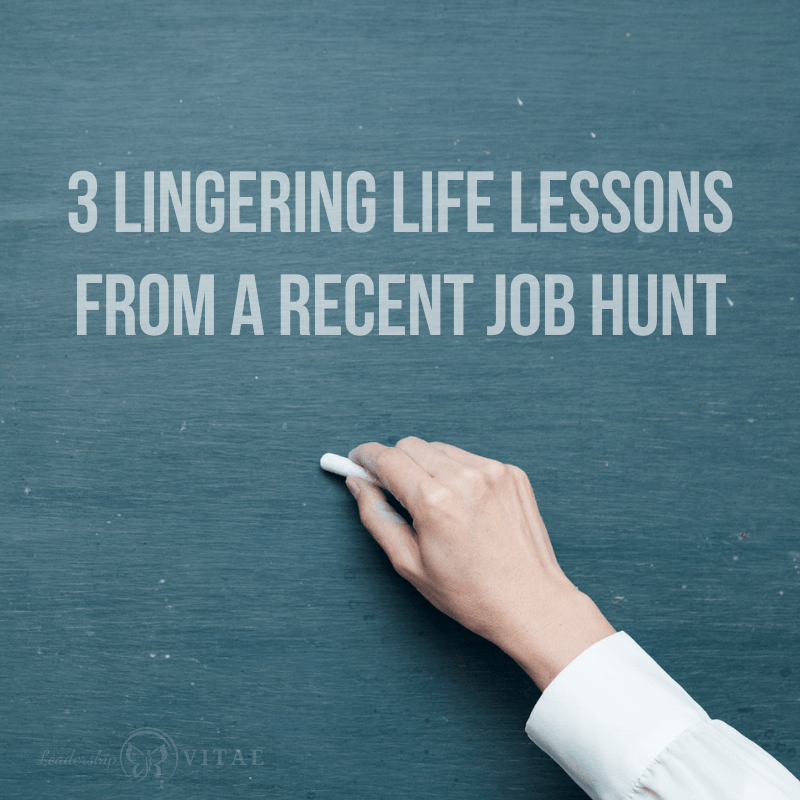
Not that long ago, I lost my job and found myself on the job hunt in (relative) earnest.
I had a suspicion this was coming, if only due to recent reorganizations and budget reductions. Even when we suspect something will happen, it becomes very real when we start thinking in terms of stopped paychecks, health insurance, etc.
I am very fortunate. This is not the first time I’ve found myself without a job. Last time was unexpected and there was no severance, savings, or plan. Just abject terror and a scramble to find something new.
This time, I planned ahead. Ensured I had time to know my next step is one I really want to take, with a company and role I can thrive in.
As a coach and mentor, I believe that every challenging experience is worth it if it means the lessons can help someone else’s journey go a little smoother. This time has been no exception, and many good lessons have come out of this process.
There are obvious ones, like ATS’s and keywords. (Hint: jobscan.co was a wake-up call, realizing that I only had a 32% match on a job I already HAD!) Then there were the not-so-obvious ones, like doing job hunting right is a full-time job.
The lessons that will linger go well beyond the job hunt. Some are old favorites I applied in new ways. Others were unexpected gifts. Ones I’m happy to share.
Connect with others in a similar situation
Losing a job and looking for a new one is not just time consuming. It can be very stressful as well.
Depending on our financial situation, there may be a sense of urgency about the search. Additionally, we may have the added stress of having loved ones reliant on us.
A burden shared is a burden lessened.
During the job hunt, connecting with others can provide emotional support when we need it most. We can share the frustration of those dreaded ATS systems, adjusting the resume for every job, and dreaded auto-reply rejection emails that hint maybe no one looked at it. Those same connections can be a place to share ideas, job postings, or interview tips.
I have been so grateful to know someone else going through a search at the same time. We’ve cheered each other on, exchanged jobs we each thought the other would be a fit for, and shared connections in our networks.
Connecting with others in our same situation can be the tether we need to stay afloat during a difficult time.
It pays to give
From very early in my career, I’ve struggled with the idea of being perceived as a taker. Activating my network and asking for help is something I’ve been actively working on, but it still feels uncomfortable.
Years ago, I read Adam Grant’s “Give and Take”. In it, he asserts that the best outcomes can be achieved through balance of give and take. With that in mind, I’ve sought to give where I can in each interaction throughout the process.
Rather than make interactions about my search, I attempt to focus on what the person or company is looking to achieve. If there’s something I might contribute, great. If not, who might I know that can?
When a role is meant for us, it’s not meant for anyone else. And vice versa. There is no harm in pointing companies to others for opportunities. If anything, it demonstrates commitment to their success and they are more likely to consider us when something comes up that is a fit.
When we give, and keep others in mind for opportunities, it creates opportunities for us as well. That which is ours will find us. Helping others find what’s theirs builds connection, trust, and further opportunity.
Manage the narrative
Getting a new job is all about telling stories, to ourselves and others.
The first story to consider is about ourselves. What do we want and why? If we find a job we’re interested in, why would we be a good fit for it? For the company?
Mindset matters, and it influences every step of the process – from what we include in our resume and which jobs we apply for, all the way through negotiating the offer and starting a new job.
But story-telling doesn’t stop there. Hiring managers and interviewers are also creating stories about us. From the moment they see a resume, a narrative begins to form. One we need to manage.
Throughout the job hunt, I’ve had to manage my own inner narrative. Know what was important to me, and what I’d be willing to compromise on. I had to know my value, and challenge imposter syndrome and self-doubt.
I also had to influence, and occasionally gently correct, interviewers that had a different narrative about my skills or experience. That may have underestimated my value, if I allowed it.
Managing our own narrative, and that of others, is one that is critical beyond the job hunt. As we start the job and meet new people, it’s important to keep our internal and external narratives positive, true, and aligned.
Good luck
If you’re finding yourself searching for a new role, out of interest or necessity, best of luck on your journey. It can be frustrating and time-consuming, but it can also be a wonderful opportunity to learn.
We may learn about what we don’t want, or that a company or role is not a fit. These are gifts, helping redirect us to that which we are meant to pursue. Other opportunities may not seem like a fit at first. If we are open, we may realize a new way to contribute our gifts to the world.
Along the way, please reach out to others. Shared connection can ease the journey. Give what you can, as it will pay dividends. Finally, know your story and your value. They are not for anyone else to define but you.
May you find an opportunity that brings you joy and allows you to share your unique gifts with the world.








